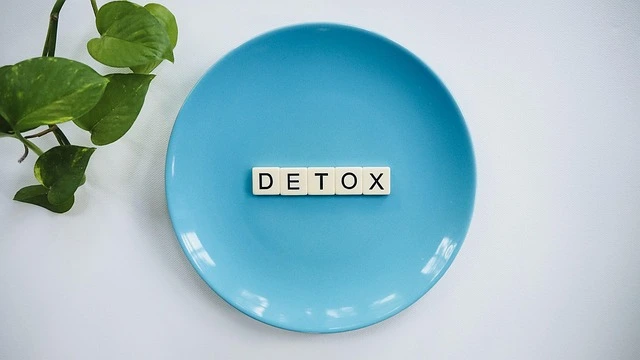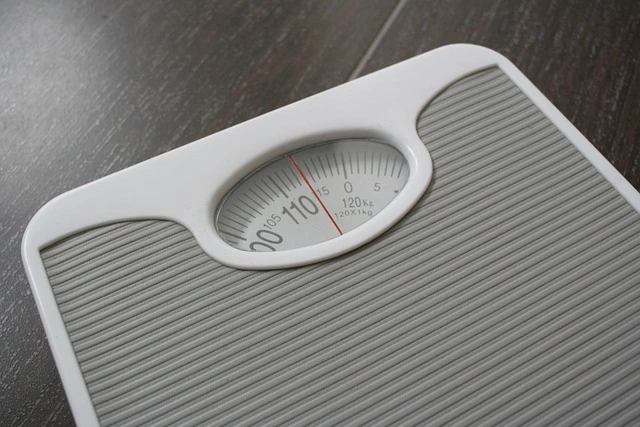Introduction
Losing weight can often feel like a never-ending challenge. With countless diets, exercise routines, and health trends available, it’s easy to feel overwhelmed by the sheer amount of information. One of the most effective yet often overlooked approaches to weight loss is detoxification. By helping the body eliminate toxins and supporting its natural processes, detox can provide the boost needed to kickstart a successful weight loss journey.
In this guide, we will explore how slimming and detox work together to support weight loss, improve overall health, and boost your energy levels. We’ll break down the core aspects of detoxing, from understanding its benefits to integrating it into your daily routine, and how you can avoid common mistakes along the way. Let’s begin by diving into the basics of weight loss and detoxification, and how they work together to help you achieve your goals.
Section 1: Understanding Weight Loss and Detoxification

To successfully embark on a weight loss journey, it’s crucial to understand the relationship between detoxification and slimming. While they are distinct processes, they complement each other in meaningful ways. Detox helps cleanse the body, removing built-up toxins that can hinder weight loss, while slimming involves creating a caloric deficit through diet and exercise.
What is Detoxification?
Detoxification is the process by which your body eliminates toxins. These toxins can come from food, the environment, or even stress. The body has its own natural detoxification system, which includes organs like the liver, kidneys, and digestive system. However, when these organs become overwhelmed with too many toxins, they may not function as effectively. A detox program helps support these organs, giving them the chance to function optimally and flush out the harmful substances that have accumulated over time.
The Role of Detox in Weight Loss
Detoxing can play a significant role in weight loss by boosting metabolism, reducing inflammation, and promoting healthy digestion. When toxins accumulate in the body, they can disrupt normal metabolic processes, making it harder for the body to burn fat efficiently. Detoxification helps reset these processes, allowing the body to burn calories more effectively.
Moreover, a detox program can help reduce water retention and bloating, which can make a significant difference in how you feel and look. Many people notice immediate weight loss after a detox, often due to the elimination of excess water and waste products from the digestive system.
The Connection Between Detox and Healthy Habits
Detoxing also serves as a catalyst for developing healthier habits. Once you start eliminating toxins from your body, it becomes easier to make better food choices and commit to regular exercise. Many detox programs encourage healthy eating, which can promote sustainable weight loss by reducing the intake of processed foods, sugar, and unhealthy fats.
In essence, detoxing not only supports weight loss by flushing out toxins but also helps you develop a clearer, healthier mindset towards food and wellness. For a deeper dive into the methods of detoxing and their impact on weight loss, check out our detailed guide on the benefits of natural detox.
Section 2: The Best Methods for Losing Weight

When it comes to losing weight, it’s important to focus on methods that are both effective and sustainable. Quick fixes like crash diets may yield short-term results but are often not sustainable in the long run The key to lasting weight loss is consistency and the right combination of healthy eating, exercise, and mindset.
In this section, we’ll dive into some of the most effective methods for losing weight and how detoxification can enhance these strategies.
1. Caloric Deficit: The Foundation of weight loss
The most fundamental principle behind weight loss is creating a caloric deficit. This means that you need to burn more calories than you consume. When your body has a calorie deficit, it starts to burn fat for energy, leading to weight loss.
A Detox program can help you achieve this by resetting your body and giving yourmetabolism the jumpstart it needs. By eliminating toxins, detoxing helps improve digestion and metabolism, making it easier to maintain a healthy caloric deficit without feeling deprived
How to Implement a Caloric Deficit
- Track your intake: Use a food diary or a calorie-tracking app to monitor your daily intake.
- Exercise regularly: Exercise helps you burn extra calories, contributing to the caloric deficit needed for weight loss.
- Choose nutrient-dense foods: Focus on whole foods, which are lower in calories but higher in nutrients, making it easier to stay full and satisfied.
2. Exercise: Combining Cardio and Strength Training
While diet is essential for weight loss, exercise plays an equally important role. Cardio exercises like running, cycling, and swimming are great for burning calories, while strength training helps build muscle mass, which increases your resting metabolism.
Integrating both types of exercise into your routine allows you to burn more calories, both during exercise and at rest. When combined with a detox program, exercise helps promote fat loss, improve circulation, and support muscle recovery.
How to Implement Exercise:
- Aim for a mix of cardio and strength training: Incorporate activities like running, cycling, and strength training into your weekly routine.
- Exercise consistently: Aim for at least 150 minutes of moderate-intensity cardio each week, along with two to three strength training sessions.
- Stay active throughout the day: In addition to structured workouts, try to stay active by walking, taking the stairs, or doing activities that keep you moving.
By combining a healthy diet with regular exercise, you can accelerate your weight loss efforts and enhance the effects of detoxification.
3. Mindful Eating
Mindful eating focuses on being present and aware during meals, which helps you better understand your body’s hunger cues. By paying attention to how and when you eat, you can avoid overeating, improve digestion, and make healthier food choices. A detox program encourages eating whole, nutrient-dense foods, making it easier to adopt mindful eating practices.
How to Implement Mindful Eating:
- Eat slowly and without distractions: Take the time to enjoy your food and pay attention to your body’s signals of hunger and fullness.
- Practice portion control: Use smaller plates, and avoid eating straight from a package to help regulate portion sizes.
- Avoid emotional eating: Practice mindfulness to help manage emotional triggers that may lead to overeating.
Mindful eating not only supports weight loss but also helps you develop a healthier relationship with food, which is key to long-term success.
For more tips on the best weight loss methods, including how detoxing supports your goals, check out our full guide on How Detoxing Supports Weight Loss.
Section 3: The Benefits of Detoxification for the Body

Detoxification is not just a fad it’s a vital process that supports the body in eliminating harmful substances that can affect your health and metabolism. When you detox, you’re giving your organs a break, allowing them to function optimally and cleanse your body. Detoxing regularly can provide numerous benefits, from improving digestion to boosting energy levels, and even aiding in weight loss.
In this section, we will explore how detoxification can positively impact your health and weight loss efforts.
1. Boosts Metabolism and aids Weight Loss
One of the main benefits of detoxification is its ability to give your metabolism a much-needed boost. When your body is bogged down by toxins, it can’t operate at its full potential. Detox programs help eliminate these toxins, which allows your metabolism to function more efficiently.
With a faster metabolism, your body burns calories more effectively, helping you maintain a caloric deficit and lose weight more easily A healthy metabolism also makes it easier to manage your weight long-term, as your body burns fat more efficiently.
How Detox Helps Your Metabolism:
- Increases fat burning: Detoxing helps remove toxins that can slow down fat-burning processes, improving calorie burn.
- Regulates hormones: Detoxing helps balance hormones that regulate hunger and fat storage, making it easier to maintain a healthy weight.
- Reduces bloating: Many detox programs help reduce water retention making you feel lighter and more comfortable.
Incorporating detoxification into your weight loss plan can significantly enhance your ability to lose weight and keep it off.
2. Improves Digestion and Gut Health
The digestive system plays a crucial role in the body’s ability to absorb nutrients and eliminate waste. A detox program helps cleanse the digestive tract removing waste buildup and promoting better digestion. When your digestive system is functioning well, your body can absorb nutrients more efficiently, reducing cravings and promoting fat loss.
Additionally, detoxing encourages the growth of beneficial gut bacteria, which helps balance your microbiome and improve digestion. Many detox programs also promote fiber-rich foods that improve bowel regularity and prevent constipation.
How Detox Improves Digestion
- Flushes out toxins: Detoxing helps remove waste buildup, promoting smoother digestion.
- Reduces bloating: By eliminating toxins and waste, detoxing reduces bloating, helping you feel lighter and more comfortable.
- Supports gut health: Detoxing encourages healthy digestion and the growth of beneficial bacteria in the gut.
By improving digestion and gut health, detoxing supports your body’s natural weight loss processes.
3. Supports Liver and kidney health
Your liver and kidneys are vital organs in the detoxification process. They filter out toxins from your body ensuring that waste is eliminated efficiently. However, when these organs become overburdened by toxins, they can’t perform their functions optimally, which can lead to a sluggish metabolism and difficulty losing weight.
detox programs that focus on liver and kidney health help support these organs, making it easier for your body to eliminate toxins and waste. Herbs like milk thistle dandelion root, and turmeric are often included in detox programs for their liver-supporting properties.
How Detox Supports Liver and Kidney Health
- Promotes liver regeneration: Detoxing supports the liver in filtering out toxins and regenerating damaged cells.
- Enhances kidney function: Detox programs help support kidney health by encouraging the elimination of waste products.
- Boosts detoxification: With a clean liver and kidneys, your body can detox more effectively, leading to improved metabolism and weight loss.
Supporting your liver and kidneys through detox can help your body run more efficiently, making it easier to lose weight and maintain a healthy lifestyle.
4. Increases Energy levels
Toxins can make your body feel sluggish and fatigued, leaving you feeling drained even after a full night’s sleep. Detoxing helps eliminate these toxins, allowing your body to function at its optimal level. With improved energy, you’ll be more motivated to exercise, eat well, and stay active, all of which contribute to successful weight loss.
Many people report feeling more energized and focused after completing a detox program, which allows them to approach their weight loss goals with greater enthusiasm and consistency.
How Detox Increases Energy:
- Removes fatigue-causing toxins: Detoxing helps eliminate toxins that drain your energy, leaving you feelingmore alert and vibrant.
- Supports nutrient absorption: By improving digestion, detoxing helps your body absorb more nutrients, which boosts energy levels.
- Reduces stress: Many detox programs include practices like yoga and meditation, which help manage stress and improve mental clarity.
Detoxing not only helps with weight loss but also leaves you feeling more energized and focused, making it easier to stay on track.
For more insights into how detoxing can support your health and weight loss journey, explore our detailed guide on How Detoxing Supports Weight Loss.
Section 4: Common Weight Loss Mistakes to Avoid

Embarking on a weight loss journey can be exciting, but it’s also filled with potential pitfalls. Many people make the mistake of following extreme diets, skipping meals, or focusing too much on the scale, all of which can hinder long-term success. Being aware of these common mistakes can help you avoid frustration and stay on track toward achieving your goals.
In this section, we’ll explore some of the most common mistakes people make when trying to lose weight and how you can avoid them.
1. Relying Too Heavily on the scale
One of the most common mistakes people make is obsessing over the number on the scale. While it’s true that weight loss can be measured by the scale, it doesn’t tell the whole story. Your body weight fluctuates due to various factors such as water retention, muscle gain, or even the time of day. As a result, focusing solely on the scale can lead to frustration and discouragement, especially when progress seems slow.
How to Avoid This Mistake
- Track progress in multiple ways: Use methods like body measurements, progress photos, or how your clothes fit to get a clearer picture of your progress.
- Focus on how you feel: Notice how your energy levels, mood, and sleep improve as you make healthier choices.
- Look at long-term trends: Instead of getting discouraged by daily fluctuations, monitor your weight over weeks or months to see overall trends.
By shifting your focus away from the scale and paying attention to other indicators of progress, you’ll find it easier to stay motivated and on track.
2. Following Extreme Diets
Extreme diets that promise rapid weight loss often lead to short term results, but they are rarely sustainable Cutting out entire food groups or severely restricting calories can leave you feeling deprived and eventually cause you to binge or regain the weight. Furthermore, these types of diets often lack essential nutrients, which can negatively impact your health.
How to Avoid This Mistake:
- Choose a balanced approach: Focus on a well-rounded diet that includes all food groups in moderation. This will provide your body with the nutrients it needs to function properly.
- Avoid drastic restrictions: Instead of eliminating foods aim to reduce portion sizes and opt for healthier versions of your favorite foods.
- Make gradual changes: Aim for steady, sustainable weight loss by making small adjustments to your diet over time.
Extreme diets may offer quick results, but they aren’t a long-term solution. A balanced approach to eating is far more effective for long-term weight loss and health.
3. Skipping Meals or Undereating
In an effort to lose weight faster, some people skip meals or drastically cut their calorie intake. While it may seem like a quick wayto create a caloric deficit, skipping meals can actually slow down your metabolism and lead to overeating later on. Undereating can also result in nutrient deficiencies, fatigue, and muscle loss.
How to Avoid This Mistake:
- Eat regular meals: Make sure you’re eating balanced meals throughout the day to keep your energy levels stable and prevent overeating.
- Focus on portion control: Rather than skipping meals, reduce portion sizes and focus on nutrient-dense foods to stay full longer.
- Snack smart: If you’re hungrybetween meals, opt for healthy snacks like fruits, nuts, or vegetables to curb your appetite.
Consuming enough calories and maintaining a steady eating schedule is essential for supporting your metabolism and achieving sustainable weight loss.
4. Neglecting Strength Training
Many people focus primarily on cardio exercises when they aim to lose weight, but neglecting strength training can be a big mistake. Strength training is crucial for building lean muscle mass, which boosts metabolism and helps the body burn more calories at rest. Additionally, muscle gives the body a toned and sculpted appearance whichenhances weight loss results.
How to Avoid This Mistake:
- Incorporate strength training: Include two to three strength training sessions per week in your routine. Focus on compound movements like squats, lunges, and push-ups that target multiple muscle groups.
- Combine cardio and strength training: For optimal weight loss, combine cardio exercises with strength training to maximize fat burn and muscle gain.
- Use bodyweight exercises: If you don’t have access to a gym, bodyweight exercises like squats, planks, and burpees are great for building muscle at home.
Strength training is essential for not only losing weight but also shaping your body and improving overall health.
5. Not Getting Enough Sleep
Sleep is often overlooked in weight loss strategies, but it’s one of the most important factors in maintaining a healthy weight. Lack of sleep can disrupt hunger hormones, increase cravings for unhealthy foods, and slow down your metabolism. Sleep deprivation can also lead to fatigue, making it harder to stick to your exercise routine.
How to Avoid This Mistake:
- Prioritize sleep: Aim for 7-9 hours of quality sleep each night to help regulate your hunger hormones and support your metabolism.
- Create a bedtime routine: Establish a relaxing pre-bedtime routine to help your body wind down and prepare for restful sleep.
- Limit screen time before bed: The blue light from screens can interfere with your sleep cycle, so try to avoid electronic devices an hour before bedtime.
Getting enough sleep is crucial for supporting your weight loss efforts and overall well-being.
6. Ignoring Hydration
Drinking enough water is often overlooked when it comes to weight loss, but hydration plays a crucial role in the process. Water helps flush out toxins, aids digestion, and supports metabolism. It also helps reduce bloating and can prevent overeating as sometimes thirst is mistaken for hunger.
How to Avoid This Mistake:
- Drink water throughout the day: Aim for at least 8 cups (2 liters) of water daily, or more if you’re active.
- Start your day with water: Drinking a glass of water first thing in the morning helps rehydrate your body and jumpstart your metabolism.
- Choose water over sugary drinks: Replace soda or juice with water, herbal teas, or sparkling water to reduce calorie intake.
Proper hydration is essential for weight loss, as it supports detoxification, digestion, and overall health.
For more insights on how to avoid common mistakes and achieve sustainable weight loss, explore our guide on How Detoxing Supports Weight Loss.
Section 5: How to Easily Integrate Detox into Your routine

Integrating detoxification into your daily routine doesn’t have to be complicated or time-consuming. Simple lifestyle changes and small daily habits can support your body’s natural detoxification processes, leading to better health, improved digestion, and even enhanced weight loss. The key is consistency and finding a detox routine that works for your lifestyle.
In this section, we’ll explore practical ways to incorporate detox habits into your everyday life, so you can start feeling the benefits without feeling overwhelmed.
1. Start your Day with water
One of the simplest and most effective ways to start your detox routine is by drinking water as soon as you wake up. After a night of rest, your body is naturally dehydrated, and drinking water first thing helps flush out toxins and kickstart your metabolism for the day ahead
For added detox benefits, try adding lemon to your water. Lemon helps stimulate digestion, supports the liver, and provides a burst of vitamin C, making it an excellent addition to our detox routine
How to Implement It:
- Drink a glass of water as soon as you wake up to hydrate and support your metabolism.
- Add lemon for added detox benefits and a refreshing start to your day
- Consider herbal teas: Teas like ginger, dandelion, or green tea can also support detoxification and digestion.
Starting your day with hydration is a simple yet effective habit that supports your detox process and sets a positive tone for the rest of the day.
2. Incorporate Detox Foods into Your diet
A detox program is most effective when combined with a nutrient-rich, whole foods diet. Foods like leafy greens, berries, citrus fruits, and cruciferous vegetables (such as broccoli and cauliflower are rich in antioxidants and vitamins that help your body eliminate toxins
By focusing on eating a variety of fresh, whole foods, you can support your body’s detoxification pathways while providing essential nutrients Avoid processed foods, refined sugars, and artificial additives, as these can hinder the detox process and contribute to weight gain.
How to Implement It
- Eat leafy greens: Incorporate vegetables like kale, spinach, and arugula into your meals for fiber and detox benefits.
- Include citrus fruits: Lemons, oranges, and grapefruits are great for digestion and liver support.
- Opt for cruciferous vegetables: Vegetables like broccoli Brussels sprouts, and cabbage support liver detoxification.
Incorporating more detox-friendly foods into your diet will help your body function optimally and support your weight loss journey.
3. Move Your Body Regularly
Exercise is one of the most effective ways to support detoxification. Physical activity promotes blood circulation, enhances lymphatic drainageand stimulates sweat, all of which help remove toxins from the body. Regular exercise also supports weight loss by increasing the number of calories you burn.
Even if you don’t have time for a full workout, small changes like walking, stretching, or taking the stairs can make a big difference. The goal is to stay active and incorporate movement throughout your day.
How to Implement It
- Aim for 30 minutes of exercise most days of the week. This can be anything from brisk walking to strength training.
- Add movement to your day: Take the stair, walk during phone calls, or try a quick workout during lunch.
- Try yoga or stretching: These activities can promote detoxification by improving circulation and reducing stress.
By staying active, you’ll enhance your detox efforts and create a healthy routine that supports weight loss.
4. Practice Stress Management
Stress is a major factor that can slow down your body’s detoxification processes. High levels of stress can increase the production of cortisol, a hormone that promotes fat storage, especially around the belly. By managing stress, you can support your detoxification efforts and promote weight loss.
There are many ways to manage stress, from deep breathing exercises to meditation. Even taking a few minutes each day to relax and focus on your breath can have significant benefits for your health.
How to Implement It:
- Practice deep breathing: Spend a few minutes each day practicing deep breathing to reduce stress and stimulate the lymphatic system.
- Try meditation: Apps like Headspace or Calm can guide you through mindfulness exercises that reduce stress and improve mental clarity.
- Take breaks: Incorporate short breaks throughout your day to relax and reset your mind.
Managing stress is an essential part of a detox routine, as it helps maintain hormone balance and supports overall well-being.
5. Get Enough Sleep
Quality sleep is often underestimated when it comes to detoxification. During sleep, your body repairs itself, flushes out toxins, and restores energy levels. A lack of sleep can disrupt your body’s detox processes and make it harder to lose weight.
Aim for 7-9 hours of quality sleep each night. Good sleep hygiene, such as limiting screen time before bed and creating a relaxing bedtime routine, can help improve your sleep quality.
How to Implement It:
- Prioritize sleep: Aim for 7-9 hours of sleep each night to support your body’s detox and weight loss efforts.
- Create a bedtime routine: Wind down an hour before bed by reading or practicing relaxation techniques.
- Limit screen time: Avoid screens at least 30 minutes before bed to improve sleep quality.
Getting enough sleep is a crucial part of your detox and weight loss journey, allowing your body to function at its best.
For more tips on how detox can support your weight loss goals, check out our full guide on How to Lose Weight with Detox.
Section 6: Inspiring Weight Loss and Detox Success Stories

One of the best ways to stay motivated on your weight loss and detox journey is by hearing about others who have achieved their goals. These real-life success stories serve as powerful reminders that transformation is possible for anyone. Whether you’re looking to lose a few pounds or completely revamp your lifestyle, hearing how others have navigated the path to better health can offer encouragement and inspiration.
In this section, we will share a few success stories of individuals who have successfully combined weight loss and detox to achieve long-term results. These stories highlight the benefits of detoxing, the challenges faced along the way, and the power of commitment and consistency.
1. Sarah’s Transformation: From Fatigued to Energized
Sarah, a 34-year-old mother of two, had been struggling with weight gain and low energy for years. She tried multiple diets, but nothing seemed to stick. She found herself constantly fatigued and unable to keep up with her daily tasks, which included caring for her children and managing her job.
Sarah decided to try a detox program that focused on clean eating, regular exercise, and hydration. She eliminated processed foods, incorporated more fruits and vegetables, and made time for exercise. The detox not only helped her shed excess weight but also boosted her energy levels, allowing her to feel more vibrant and engaged with her family.
Results:
- Lost 25 pounds within three months.
- Improved energy levels: Sarah felt more energetic and was able to keep up with her children and daily responsibilities.
- Better digestion: Sarah noticed reduced bloating and improved digestive health.
Sarah’s story shows that with the right approach, it’s possible to regain control over your health and feel better in both mind and body.
2. Emily’s Journey: Rebuilding Her Health After Stress
Emily, 42, had always been relatively active, but a stressful job change led to weight gain and poor eating habits. She found herself gaining weight due to emotional eating, and her energy levels plummeted. After trying several quick-fix diets with no success, Emily realized that she needed a more holistic approach to regain her health.
She embarked on a 30-day detox program that focused on improving her eating habits, drinking more water, and practicing mindfulness. Emily committed to daily walks and yoga sessions to reduce stress and promote detoxification. As the days went by, she began to feel more focused, and her weight slowly started to drop.
Results:
- Lost 20 pounds over two months.
- Improved sleep quality: Emily now sleeps through the night and wakes up feeling more refreshed.
- Mental clarity: Her focus and productivity at work improved, and she felt less stressed.
Emily’s journey is a testament to the power of a detox program that not only supports physical health but also improves mental clarity and emotional well-being.
3. Jessica’s Breakthrough: Overcoming Emotional Eating
Jessica, 28, had struggled with emotional eating for most of her life. She would turn to food whenever she felt stressed, anxious, or bored, leading to weight gain and unhealthy habits. After a difficult breakup Jessica decided it was time to break free from this cycle and regain control over her health.
She turned to detoxing as a way to reset her body and her relationship with food. Jessica focused on clean eating, replacing unhealthy snacks with nutrient-dense options, and incorporating regular yoga and mindfulness practices into her daily routine. The detox helped her develop a healthier mindset around food, and she found herself craving nourishing meals instead of comfort foods.
Results:
- Lost 30 pounds in four months.
- Improved emotional well-being: Jessica felt more in control of her emotions and no longer used food as a coping mechanism.
- Better body image: Her confidence grew as she saw her body chang and she felt empowered by her healthier relationship with food
Jessica’s success story demonstrates the importance of addressing emotional eating and developing a balanced, mindful approach to food.
4. Clara’s Journey: A Healthier Relationship with Food
Clara, 38, had tried various diets in the past but none of them provided lasting results. She often felt hungry and deprived, which led her to give up on dieting altogether. However, Clara knew that her weight was impacting her overall health, so she decided to approach her weight loss goals in a different way.
She started a detox program that emphasized eating whole, nutrient-dense foods and eliminating processed foods from her diet. The detox encouraged her to drink more water and adopt healthier eating habits, which helped her feel fuller and more satisfied. Clara also made time for regular workouts, focusing on both cardio and strength training.
Results:
- Lost 18 pounds over the course of three months.
- Improved digestion: Clara noticed less bloating and more regular bowel movements.
- Enhanced energy levels: She felt more energized and was able to maintain a consistent exercise routine.
Clara’s story is an example of how focusing on whole foods and gradual changes can lead to lasting results without the need for extreme dieting or deprivation.
5. Laura’s Success: Detoxing for Physical and mental Health
Laura, 45, had always considered herself healthy, but after a period of stress at work, she found herself gaining weight and feeling sluggish. She was tired all the ime and struggled to stay motivated. Realizing that stress was affecting her health, Laura decided to try a detox program to reset her body and mind.
She committed to a detox that included whole foods, increased hydration, and regular exercise. Laura also practiced mindfulness and meditation to manage her stress levels. As she followed the detox program, she started to notice improvements in her physical health as well as her mental clarity and emotional well-being.
Results:
- Lost 15 pounds in two months.
- Improved mental clarity: Laura felt more focused and calm, even during stressful work situations.
- Better overall well-being: She felt more energized and was able to manage her stress more effectively.
Laura’s success demonstrates that detoxification can help improve not just your physical health, but also your mental and emotional well-being, supporting a more balanced and fulfilling life.
For more information on how detoxing can help you achieve your weight loss goals, check out our full guide on How to Integrate Detox into Your Daily Routine.
Conclusion
Embarking on a weight loss journey is not always easy, but with the right approach, it’s entirely achievable. Detoxing can be an incredibly valuable tool in this process, helping your body remove toxins, boost metabolism, and support overall health. Whether you’re aiming to lose weight, gain more energy or improve digestion, incorporating detox practices into your routine can help you get there faster and more sustainably
Through the simple practices outlined in this guid such as drinking more water, eating whole foods, staying active, and managing stress, you can begin to notice improvements in both your physical and mental well-being. Detox is not about quick fixes but rather a long-term commitment to living a healthier, more balanced life.
If you’re looking for more practical tips to get started with detoxing and weight loss, dive into our article on How to Lose Weight with Detox for additional strategies and inspiration.
By making small, consistent changes and prioritizing your health, you’ll be well on your way to achieving your weight loss goals and feeling your best both inside and out.

